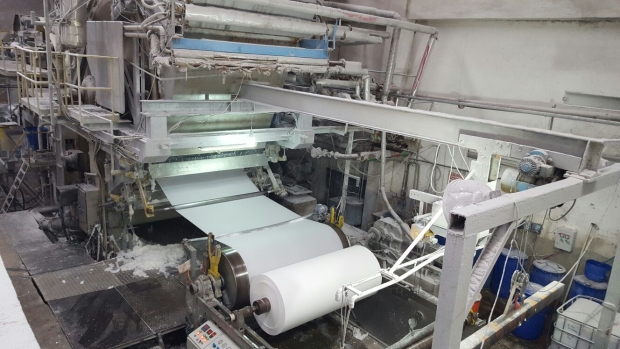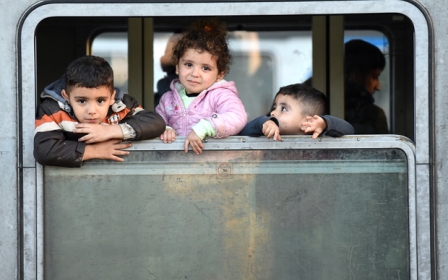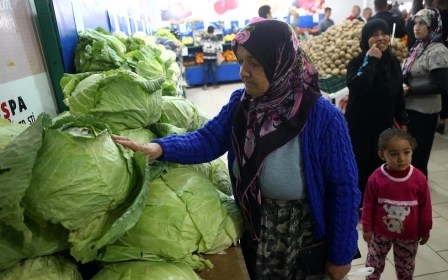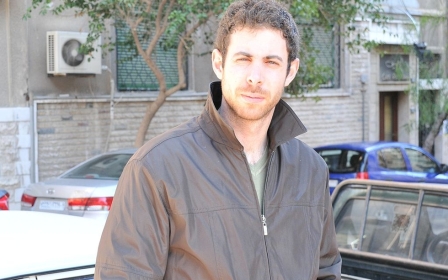Syrian entrepreneurs start afresh in Turkey
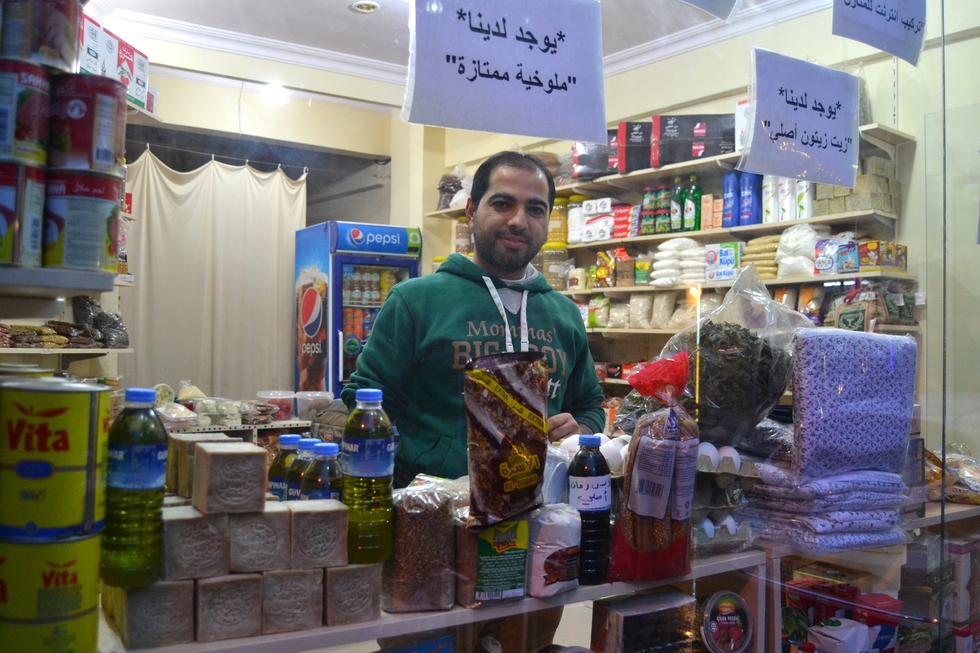
ISTANBUL – Absent-mindedly flicking his prayer beads, Khalid Alouzi stares vacantly into space, lost in deep thought before snapping back to reality.
“My poor country. My poor people. We shouldn’t be remembered like this and by God we will do whatever we can to change this view,” he said.
Alouzi, 36, fled his hometown of Aleppo in January 2015 after his clothing factory was bombed. He is one of the nearly three million Syrians sheltering in Turkey.
He’s also one of thousands of Syrians, famous throughout the Middle East for their industry and trade, who are increasingly re-establishing their shops, consultancies and factories – and starting afresh with new enterprises.
In January, nearly half of all companies established with foreign partnerships in Turkey involved Syrians. This has been the case for a while now.
The figures from Turkey’s Union of Commerce and Commodity Exchanges also show Syrian businesses in Turkey outnumbering those of Germans and Iraqis who have been dominant in recent years.
These statistics exclude small businesses launched by Syrians, which are hard to estimate as a result of the country’s large informal sector. Some reports, however, point to a 40 percent rise in Syrian enterprises, big and small, launched in the last few years.
Regulation woes
The products displayed at Alouzi’s grocery store in the heart of old Istanbul serve as a great example of Syrian enterprise in Turkey. Almost half the products lining the shelves have Arabic labelling and cater specifically to the tastes of the Syrian community.
“It is really easy to open businesses and factories here,” Alouzi told Middle East Eye. “We have many food-processing factories opened by Syrians making products that suit Syrian tastes. They are mostly based around Gaziantep near the border.”
Alouzi said it took him just a few days to sort out his rental contract and get the required municipal permission to open his grocery store.
“The authorities and everyone were really helpful and there were no problems at all,” he said.
Yet the process – and staying in the black - is not always so easy as Hussam Fansa, 28, can attest.
Fansa, a Syrian whose family has been based in Saudi Arabia for the past three decades, opened a paper factory in the Aegean port city of Izmir in 2013. He employs 35 people, but only five, including Fansa, are Syrian.
“The law states that 90 percent of staff in any foreign-owned enterprise must be Turkish citizens,” Fansa told MEE. “I would love to employ more Syrian staff if only to make communication easier, but my hands are tied.
“I don’t understand this fear that allowing Syrians to work will harm Turkish society,” he said. “On the contrary, I think preventing them from having gainful employment will create more problems.”
In the 1980s, Fansa’s family moved to Saudi Arabia where they set up their core business of road works and construction. In the 2000s, when Syria’s economic prospects – with a liberalisation plan that saw increased foreign investment and improved diplomatic ties with the international community including neighbour Turkey - looked bright, the family invested heavily in Aleppo.
Then the civil war gradually brought things to a standstill. Their investments in Aleppo included construction projects and paper mills among others.
The family saw Turkey as the next best choice for their investments mainly due to its easy access to export markets in Africa and Europe. While the decision has turned a profit, Fansa said their operations still leave something to be desired.
Establishing his business was easy - it took less than a week to organise the paperwork for the factory. But Fansa said the sheer amount of regulations and the highly competitive nature of the Turkish market means keeping a business profitable is not easy.
The relatively high rate of industrialisation in Turkey compared with its regional neighbours means Turkish firms are already firmly established, making it tougher for newcomers to penetrate the market.
“Establishing a foothold and gaining market share is really tough,” he said. “But once you manage that, it bodes well for the future in many ways.”
Welcome wagon?
Turkish authorities, who have been seen as dragging their feet on issuing work permits for Syrians owing to their fears of potential political fallout, have nonetheless been much more welcoming of Syrian businessmen. They view it as a step to reduce the burden on the state’s coffers and also to provide an economic boost.
“The rise in the number of Syrian businesses in Gaziantep from 11 in 2011 to 471 in 2015 is a positive development and has resulted in support for the province’s exports,” Senay Copur, from the Gaziantep chamber of commerce, told an International Labour Office conference last November.
However, even she proposed a 10 percent cap on the number of Syrian employees in any business in order to protect Turkish jobs.
Although recently Turkish authorities approved work permits for Syrian refugees, they come with conditions attached which raise doubts over their potential effect.
Another factor attributed to the high number of Syrian businesses being launched in Turkey is a law that prevents Syrian nationals from buying property in the country. They can however buy property through a registered company, and some believe that at least a few of the new businesses are mere shells, set up purely to acquire property.
Yet, not all companies are set up as fronts and some have high hopes of growth and expansion.
Jihad Aoid, 35, fled Aleppo for Turkey four years ago and set up a student consultancy in Istanbul last year. He is so pleased with its success that he plans to stay in Turkey beyond the end of the Syrian war.
“My company provides guidance and orientation to students from the Arabic-speaking world looking to pursue an education in Turkey. We already have deals in place with two Turkish universities for student placement,” Aoid told MEE. “The students who apply to us are not just Syrian. They come from all over, like Saudi Arabia, Morocco and Lebanon.”
His six-year-old daughter recently started school in Turkey, and he has no plans to leave.
“We are very happy here. We shouldn’t just sit idly by and think of an imminent return,” he said. “Even if the war ends now, it will still take decades to rebuild trust in society.”
Mission: image restore
All Syrian entrepreneurs spoken to by MEE said they felt a responsibility to help change the image Syrians have gained in recent years - as either refugees or fanatics.
“Syrians are hard workers and will contribute to any society they are in,” said Fansa. “Just look at the Syrian kids peddling small items at traffic lights. Not one of them will accept money as a handout but will insist on giving you a product in return.”
On a personal level, Fansa feels he will be in a prime position to succeed in business if relations are restored between Syria and Turkey.
“The 2000s were considered a golden period for Turkish-Syrian commerce with both countries enjoying very amicable ties. But once the conflict ends we will see the real golden age, and I feel I am ideally positioned to benefit.”
The longing for home that Alouzi feels is clear, even while he points proudly to the products lining his grocery store shelves.
Pride of place goes to Syrian-made goods, like green bars of olive oil soap from Aleppo and special black-and-white chequered prayer shawls for women made in Idlib, that somehow, like Alouzi, found their way here.
“I want this situation, where the world now only remembers us for war and desperate refugees, to end,” he said. “Since antiquity, our name has been associated with top-quality products such as Damask fabrics and Damascene steel. Those days must return.”
New MEE newsletter: Jerusalem Dispatch
Sign up to get the latest insights and analysis on Israel-Palestine, alongside Turkey Unpacked and other MEE newsletters
Middle East Eye delivers independent and unrivalled coverage and analysis of the Middle East, North Africa and beyond. To learn more about republishing this content and the associated fees, please fill out this form. More about MEE can be found here.


